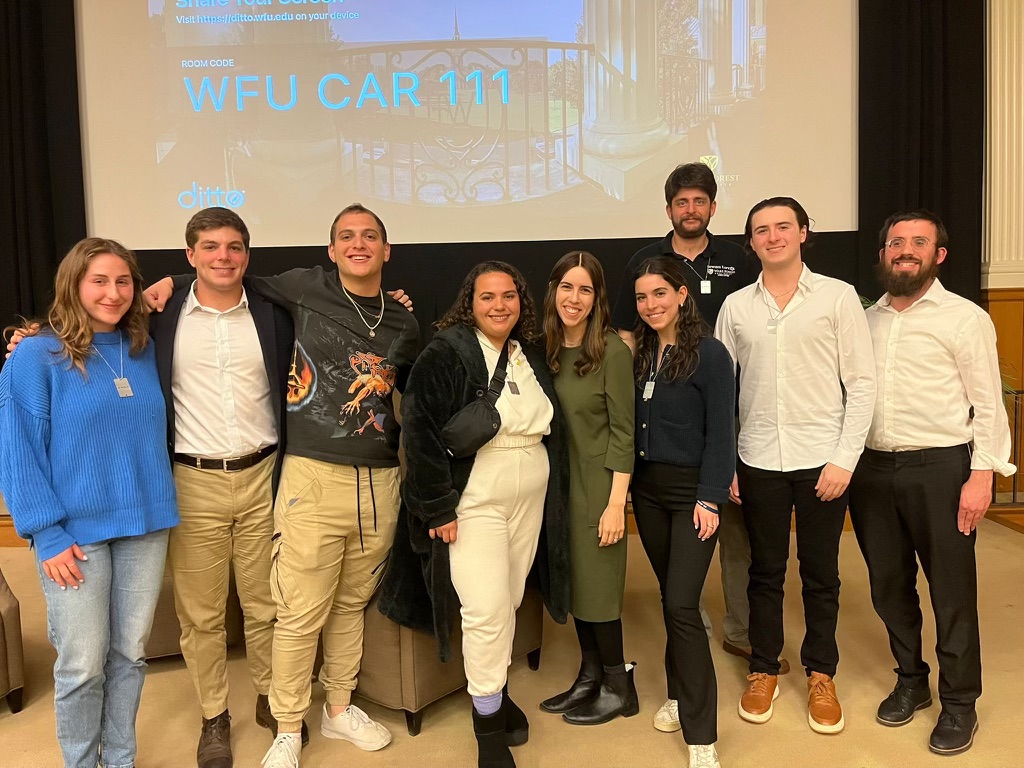Wake Forest’s motto, “Pro Humanitate,” translated to “for humanity,” urges many to use their notable abilities as Wake Forest students to better the community and the lives of others.
This year, the process for seniors to be voted into the Homecoming Court has been amended so that the court may better embrace the spirit of Pro Humanitate, opting for a more open application and nomination process as well as eliminating one of two rounds of voting.
Student Union made the decision to change the Homecoming Court process because they think that the court should be better at presenting an accurate depiction of the student body and the university as a whole.
“A change to emphasize Pro Humanitate in our Homecoming Court is to really make sure that our court this year was representative of Wake Forest and what our motto is as a school,” said senior Will Hargrove, the Student Government Speaker of the House.
In the past, Homecoming Court nominations have taken place over two rounds of voting. First, organizations across campus would nominate somebody from within their organization to be on Homecoming Court. That list would then be compiled and uploaded to Wake Information Network (WIN), and the student body would vote on the nominees. Then, the top ten nominees would be welcomed onto that year’s Homecoming Court.
After that, a second round of voting would take place to decide on the Homecoming King and Queen. Students would vote from a group of ten men to be king and a separate group of ten women to be queen.
This year, the application process is more accessible, and anyone can nominate any other student.
If a senior is nominated for the Homecoming Court, it is up to their individual discretion whether or not they would like to be on the court and accept their nomination. If they do, they must fill out an application that asks about their commitment towards Pro Humanitate.
The application is then submitted to Student Union and undergoes a thorough review process. Applications are made up of three to five questions and are read by five judges. Questions included: “What have you done in your time at Wake Forest that made a positive impact on our community?” “What does Wake Forest mean to you?” and “How are you a good representation of Wake Forest?”
A judge rates the answers of each question on a scale of 1-5 and then averages the scores of each question for a single score. That process is repeated for each judge, and a student’s final score is the average of the individual scores awarded by the separate judges. From there, the students with the highest final scores are accepted into the Homecoming Court.
The new voting process hopes to open the opportunity to be on the Homecoming Court to many more people in the community. With the old system, students in larger, more popular organizations were more likely to end up on the court than others.
Junior Keara Halpern, Student Union Homecoming Chair, said, “It has been really exciting for people who did not think they would get the opportunity to even be on the court.”
Since the change, Student Union has seen a much more diverse range of applicants when compared to previous years.
For example, Halpern said that she spoke with someone not involved with Greek life who is still involved on campus in several other ways such as being a tour guide and volunteering with Project Pumpkin. Even though the student may be a great example of what it means to adopt Pro Humanitate, they would have been less likely to be considered for court using the past system.
“The hope is that this year the people that are on the court truly exemplify what Wake Forest stands for,” Halpern said.
With these new advantages to potentially being on the court, more students are able to get their name on the ballot. In the old process, “the list could range from 20 to 50 people,” Hargrove said.
This year Halpern said there have been hundreds of nominations and 60 to 70 applications.
Many students have been pleased with the changes, and have been able to easily adhere to the new voting methods.
Maddy Burrows, a senior who applied to be on the court, said, “The application process went very smoothly. It was only three questions about my involvement on campus and what I have given back to Wake Forest community during my time here.”
Overall, the amendments to the Homecoming Court process have made it easier for some to celebrate Homecoming by proudly celebrating Wake Forest with alumni and people of the greater community.
“It is the time of year that we can celebrate being a part of the Wake Forest community,” Hargrove said. “I think it is a great week that our school gets to celebrate, and I am really excited to see what is going to come of it next week.”













